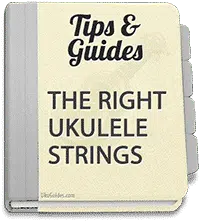Of course, when you play the ukulele, you want to produce the most fantastic sound. To do that, you will need to use the best ukulele strings. Read this guide and you will know exactly which ones to buy.
Which are the best ukulele strings to buy?
Request from Francis: “I’ve just bought a new ukulele and am looking for the best ukulele strings. Are there different types? And what should I look for?”
Without strings you can’t play your ukulele, of course, but without good strings, you will never get the full acoustic potential out of your wonderful instrument.
Most low-budget ukuleles will have very cheap strings on them, no better than plastic. For only a tiny investment, you can get a new set of high-quality strings. This will greatly improve the sound of your ukulele.
Different sizes for different ukes
As explained in the ukulele buying guide, ukuleles come in different sizes, but usually in four types: soprano, concert, tenor and baritone. Every size has a different scale length (distance from bridge to nut) and different tension requirements. So not every set of ukulele strings will fit on every type of ukulele. What follows is an overview of the different ukulele types along with their typical characteristics.
| Type | Scale length | Overall length | Tuning |
| Soprano | 13″ | 21″ | G-C-E-A |
| Concert | 15″ | 23″ | G-C-E-A |
| Tenor | 17″ | 26″ | G-C-E-A |
| Baritone | 19″ | 30″ | D-G-B-E |
In most cases, the scale length and/or overall length will be mentioned on the package of the set of strings. If not, it should at least mention the ukulele type. Where possible, for each type of ukulele string I have listed links which lead you to the correctly sized ukulele strings.
Different types of ukulele strings
The vast majority of ukulele strings are made of nylon polymers. These are the type of strings that offer that typical ukulele sound. A lot of people say they are the best ukulele strings. However, there are some very interesting alternatives. What follows is an overview of these different types.
Nylon
As mentioned before, these are the most frequently used strings. However there are many different types of nylon polymers, resulting in different sounds. In other words, the sound can vary from brand to brand. Low-budget strings are produced by extrusion, i.e. forcing molten nylon polymer through holes with specific diameters. The same process is used for more expensive strings, but after extrusion they are ground down to produce a more consistent diameter.
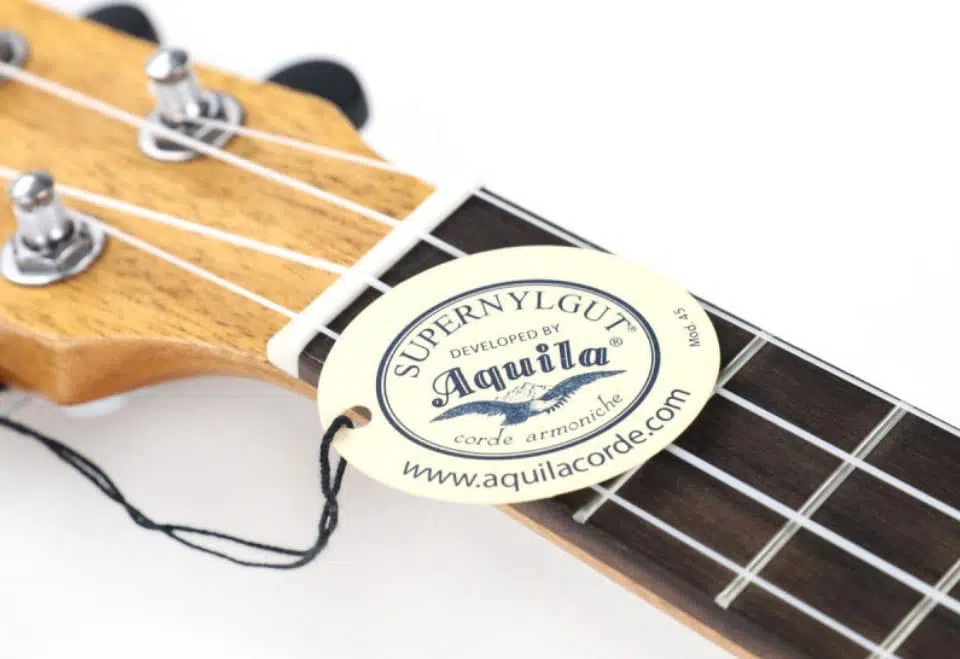
Nylon will stretch over time, so you might need to retune your ukulele. These strings are not affected by humidity, but temperature changes can cause the strings to stretch to a greater or lesser extent. The best-known brands for quality nylon ukulele strings are Aquila (soprano, concert, tenor, baritone) and D’Addario (soprano, concert, tenor, baritone). They offer good stability, durability and a warm, traditional ukulele sound.
Fluorocarbon
This material, also a polymer, is traditionally used as a fishing line. It provides a brighter sound than nylon and is perfect if you play your ukulele a lot outside the house where the temperature changes a lot, because this type of string is less affected by it. D’Addario is best-known brand producing these strings (soprano, concert, tenor, baritone) and wouldn’t recommend going for a cheaper alternative.
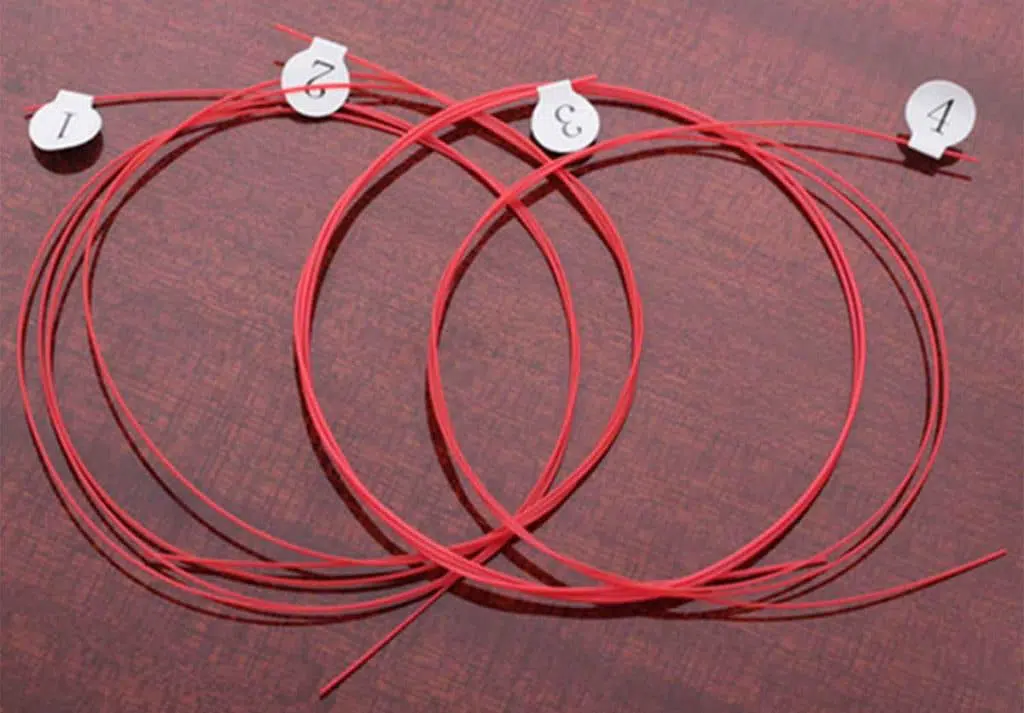
Titanium
This monofilament material offers strength, durability, and a somewhat brighter tone than nylon (similar to the tone of fluorocarbon), with more projection and volume. Might be a bit more rough on your fingertips. Martin produced some in the past, but nowadays again D’Addario is the market leader in titanium ukulele strings (soprano, concert, tenor, baritone).
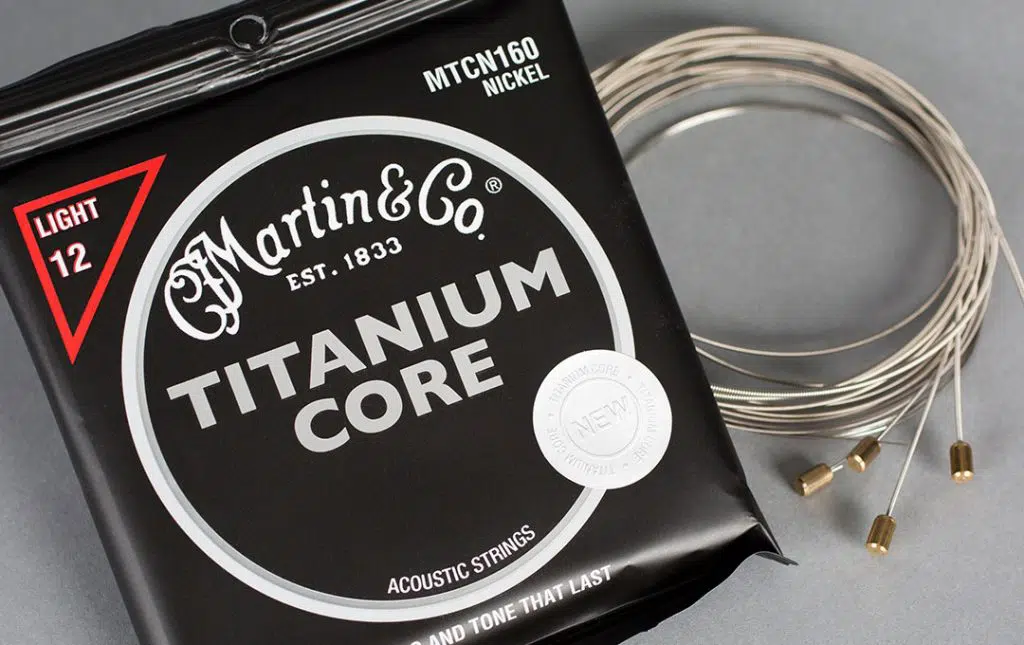
Wound nylon strings
These have a nylon core that is wrapped with a polymer winding material and are usually found in sets intended for tenor and baritone ukuleles, as the two lower strings. Some players object to the finger squeaks that these strings may produce.
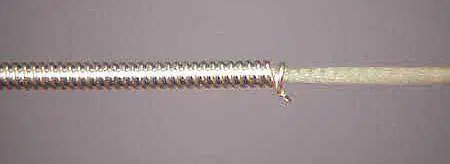
Wound metal strings
These are typically used on lower notes and larger ukuleles. The most common winding materials are copper or aluminium. They can also sound a little squeaky.
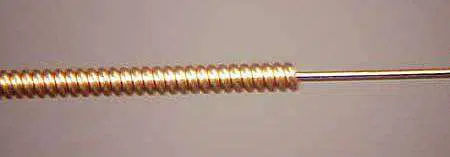
Steel strings
Steel strings are very rarely used on a ukulele and unless your instrument is specifically constructed for steel strings (that means instruments such as banjoleles, guitar/uke hybrids and dobro/uke hybrids), it is not a good idea to use them as the tension they exert on the top, bridge and neck of the instrument is likely to damage it.
Which are the best ukulele strings to choose?
There is no correct answer to this. The same set of strings can sound completely different on two different ukuleles. Try to find the right set to suit your instrument and playing style. Luckily, ukulele strings are not that expensive (even the highest quality ones), so you will be able to try out different types of strings and different brands. I personally prefer the traditional Aquila ukulele string series (soprano, concert, tenor, baritone), and they didn’t sponsor me to say that (!), but it’s completely up to you.
Need more input?
I hope this guide has helped you choose the best ukulele strings for you. Hopefully you will be able make a decision now.
Feel free to contact me whenever you need more information.
Also interested in reading the complete capo guide for ukulele beginners?
